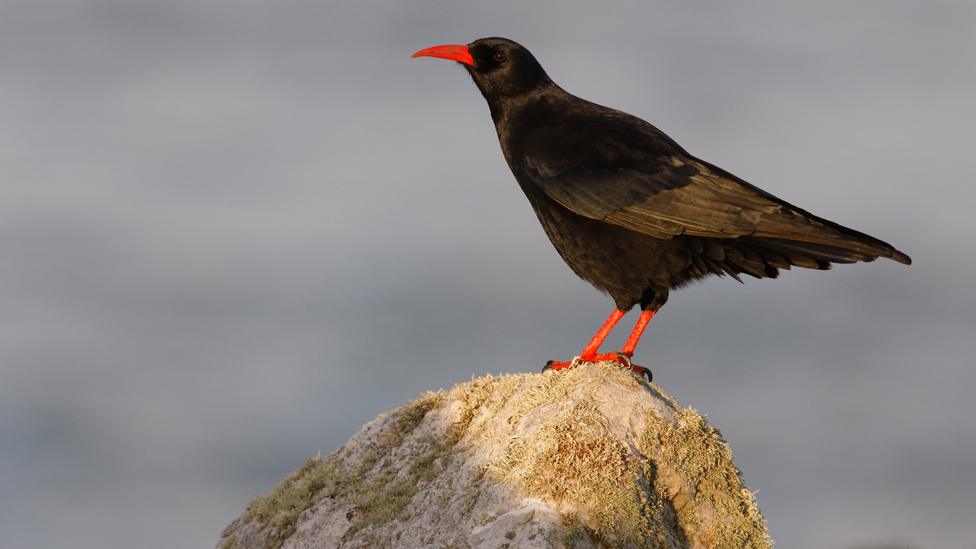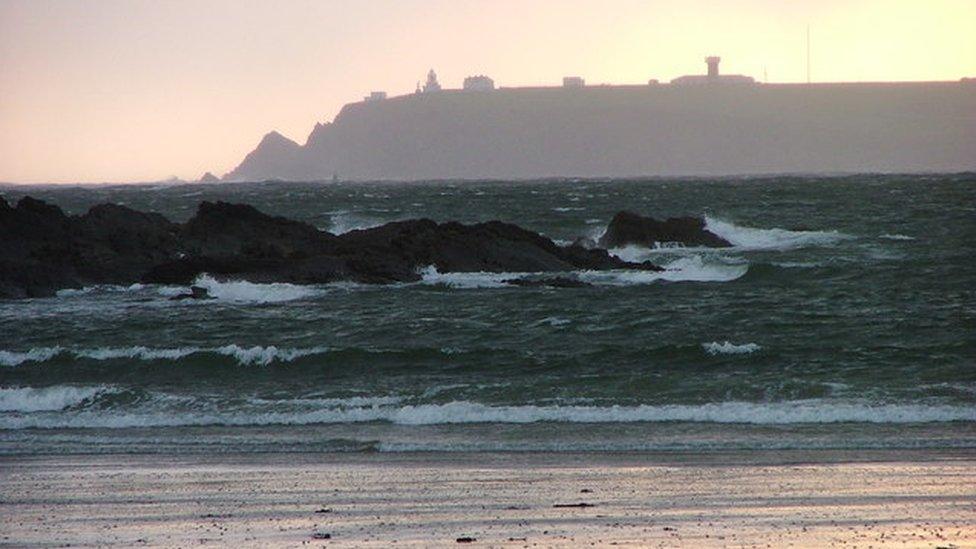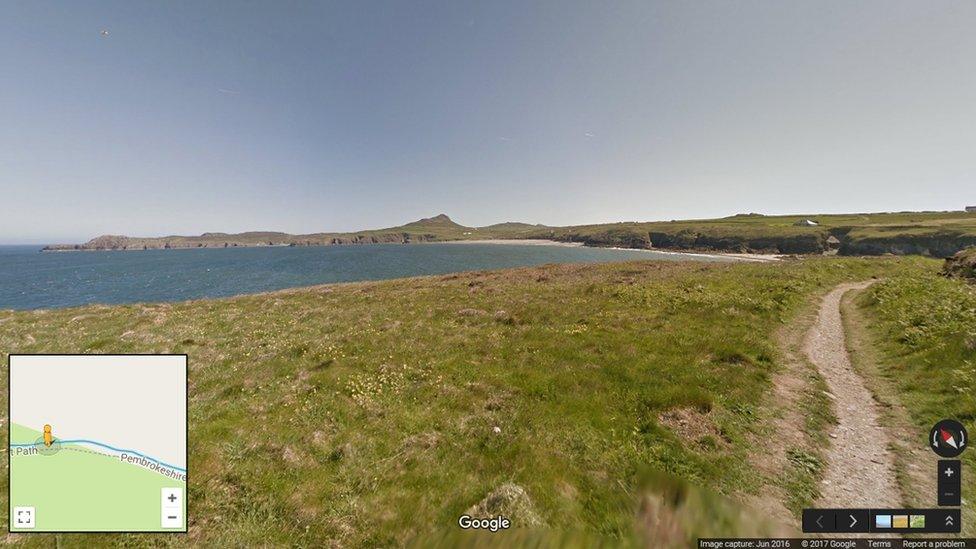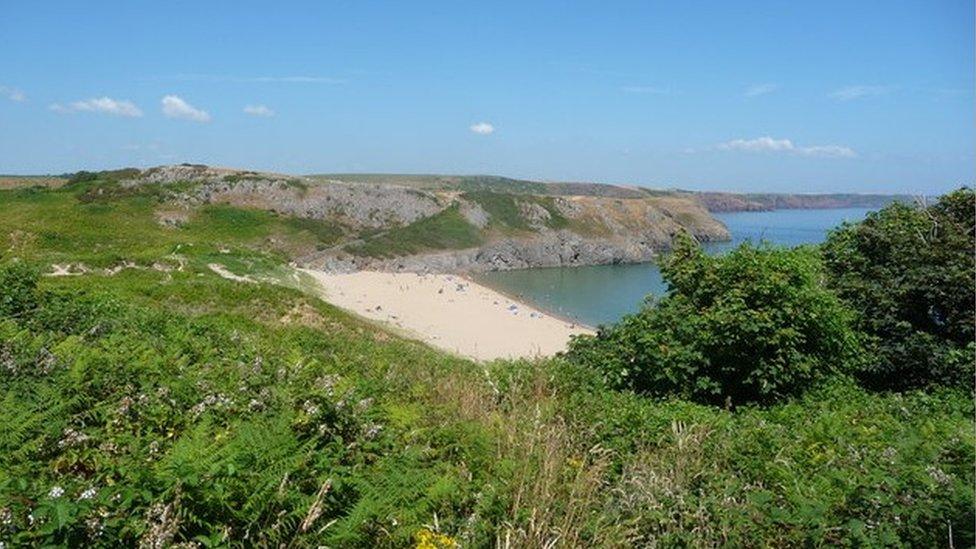Pembrokeshire coast drones risk to protected seabirds
- Published

Choughs - a rare corvid species - nest on cliffs on the Pembrokeshire coast
Protected wildlife could be put at risk because of drones flown over a national park, a ranger has said.
One was recently spotted near Stack Rocks, Castlemartin, at a time of year when guillemots and razorbills are ashore nesting.
It was reported to police and Pembrokeshire Coast National Park ranger Lynne Houlston urged drone operators not to disturb birds.
She said guidance has been developed, external, outlining the issues.
"Birds are particularly sensitive to disturbance during the nesting season and in this case the stacks were covered in thousands of seabirds, precariously perched with eggs on their feet," Ms Houlston said.
"The cliffs around Stack Rocks also provide nesting sites for kittiwakes, chough, gulls, fulmar and raven."
Ravens can start nesting as early as March, while from August to November, seal pups - which are protected by law - are born in the caves.
Guidance explains the impact drones can have on seals, wading birds, waterfowl and livestock.
- Published8 May 2019

- Published27 March 2017

- Published26 February 2019
